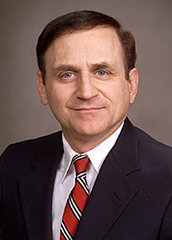Editor's Note: Social Enterprise
Creating the opportunity for the poor to help themselves
by Horace Johns* | print pdf |
Muhammad Yunus is an economist from Bangladesh who was formerly an assistant professor of economics at MTSU from 1969 to 1972, while he pursued his Ph.D. at Vanderbilt. As a professor of economics, Dr. Yunus developed the concepts of microcredit and microfinance, i.e., "loans given to entrepreneurs too poor to qualify for traditional bank loans." He founded Grameen Bank, which provides small loans to poor people with little or no credit, with the goal of helping them gain creditworthiness and financial self-sufficiency. In 2006, he and Grameen Bank jointly received the Nobel Peace Prize.
Dr. Yunus is considered the most important individual for promoting social business, a concept that is now popularly called social entrepreneurship. Many colleges and universities now offer a major in social entrepreneurship, including Belmont University. MTSU has begun efforts to establish its own center to promote the goals of social entrepreneurship.
What exactly is social business? Dr. Yunus best answers this question:
Social business is a cause-driven business. In a social business, the investors/owners can gradually recoup the money invested but cannot take any dividend beyond that point. Purpose of the investment is purely to achieve one or more social objectives through the operation of the company; no personal gain is desired by the investors. The company must cover all costs and make profit and at the same time achieve the social objective, such as healthcare for the poor, housing for the poor, financial services for the poor, nutrition for malnourished children, providing safe drinking water, introducing renewable energy, etc. The impact of the business on people or environment, rather than the amount of profit made in a given period, measures the success of social business. Sustainability of the company indicates that it is running as a business. The objective of the company is to achieve social goals. [from Yunus Centre]
Dr. Yunus says that social business is a new category of business. Social businesses are allowed to make a profit, but the profit stays with the business as owners will not take profit beyond the amount equaling investment. Social business gives a new option to consumers by adding competition to traditional business forms. A new feeling of social awareness among business people results.
In blending the goals of making a profit and achieving social objectives, Dr. Yunus says: "I am not asking anybody to 'give up' anything. All I am saying is, if you are worrying about a social problem (while totally engaged in your routine business), I have a message for you: you can make a significant contribution in resolving the problem. If you put your mind seriously into it, you may even open the door to eliminate the problem globally. You can do both: conventional business and social business."
Dr. Yunus qualifies his vision of social business to fit profit making by saying, "Some people ask me why can't you run businesses with some profit and some social benefit: 'doing well by doing good,' as it is popularly described. Of course, it can be done. I am never against it."
Dr. Yunus's ultimate goal is to eliminate world poverty. While he acknowledges that free market capitalism, governments, charity, and aid organizations may help, they alone cannot do the job. For Dr. Yunus, the right approach is to create the opportunity for the poor to help themselves—for them to become actors, not just receivers, in the goal. This is food for thought, not only for the world, but for the U.S. as it struggles to help the needy while reining in a mushrooming national debt.
